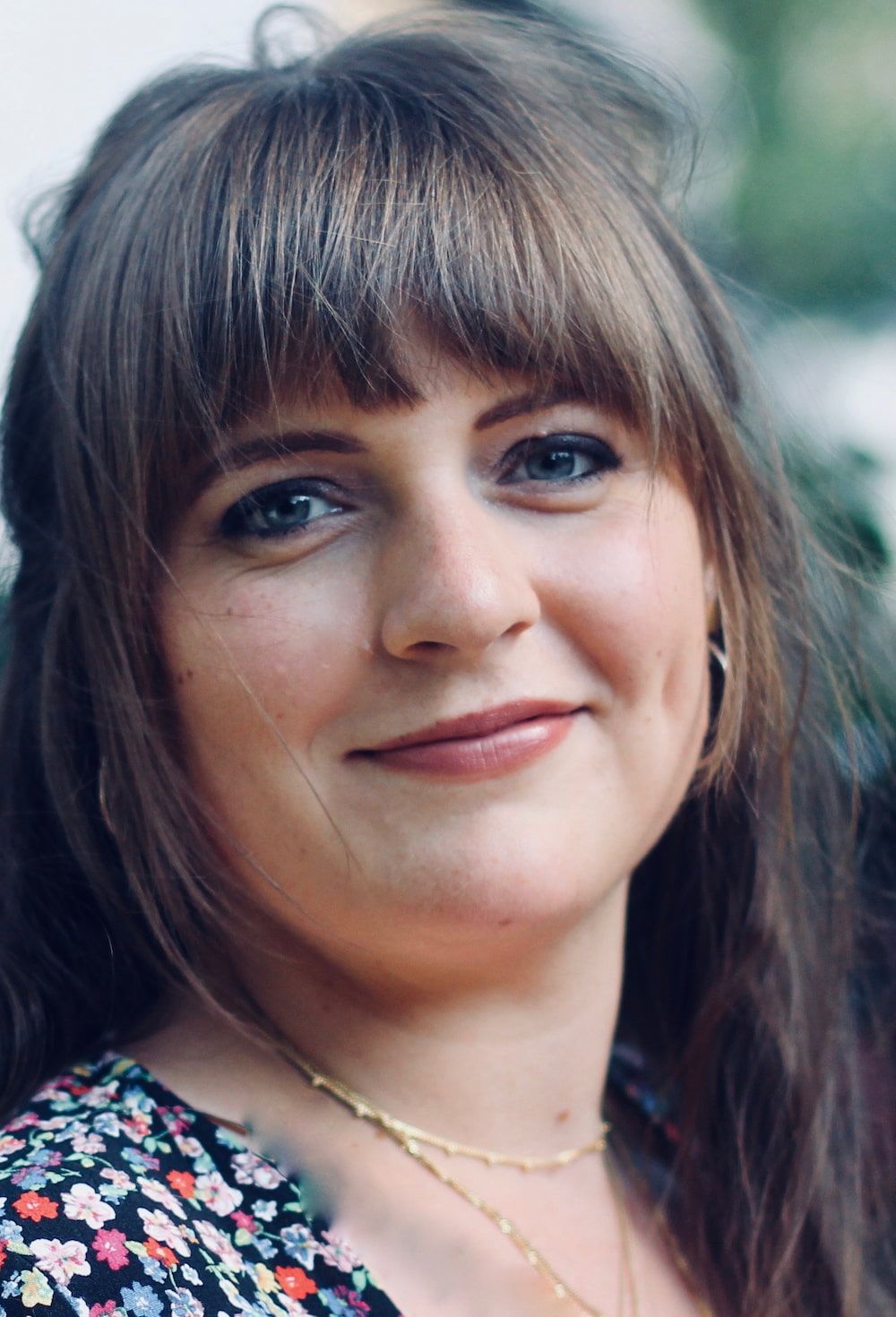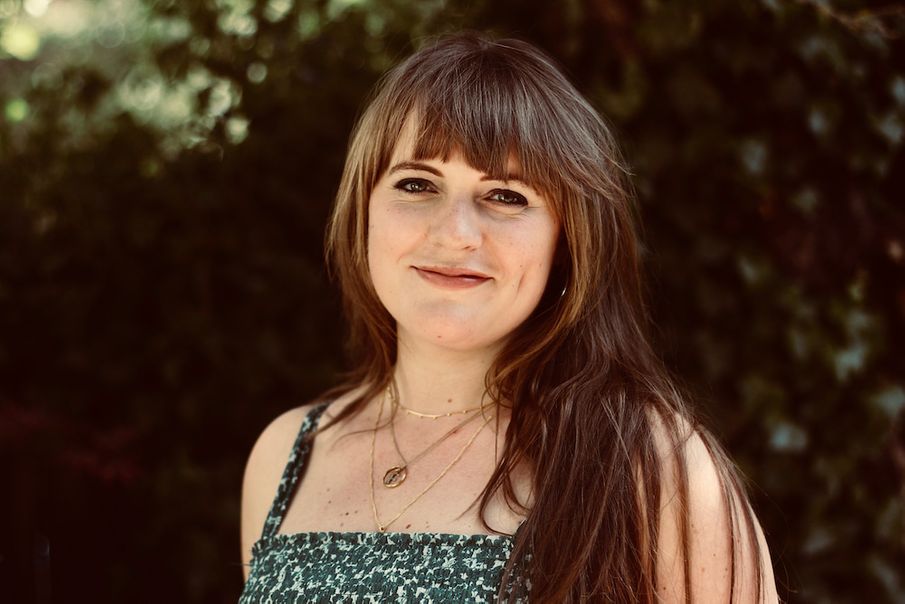When author and comedian Eleanor Thom was diagnosed with endometriosis at the age of 17, her life was thrown into a storm of confusion. Here, Eleanor writes a heartfelt letter to her teenage self about all the things she wishes she had known about life with endometriosis
Dear Eleanor,
So they’ve just told you that you have this ‘thing’. I know you don’t know what it is, or anyone who has it, and you’re panicking a bit because your exams are really soon, and you don’t have time for illnesses and operations. But you do have time. It’s OK.
The good news is that now they know what this is, you're going to get some help – sorry you’ve been suffering on your own for so long. The bad news is that this is something you’re going to have to manage with a bunch of different treatments; they don’t have a cure (even now in the future. Yeah I know, it’s pretty annoying).
Firstly, you didn’t do anything wrong, you didn’t catch it and you weren’t to know (awareness is getting better but there’s still a long way to go). Basically, the lining of the womb is called the endometrium, and each month this sheds – this is your period. With endometriosis, cells similar to this lining are found in the pelvic cavity and each month they bleed (like a period) but the blood has nowhere to go so it stays in there, causing inflammation and pain.
You want to be strong and stoic but you don’t win prizes for doing this on your own
It can stick organs together, and cause cysts too. You’ve got the organ kind at the moment but watch out for cysts – you’ll get some later on. If (when) this happens again you must go to hospital.
It’s hard to keep going back because they can be dismissive, and you just want to curl up hoping it’ll go away. But you need to get a scan and better pain relief. Take someone with you – you want to be strong and stoic but you don’t win prizes for doing this on your own.
It’s pronounced en-doe-me-trio-sis by the way – which is ridiculous as it’s not only awkward to talk about because it involves your ‘bits’, but it’s virtually impossible to say too!
I know you can’t find much about it anywhere, but this doesn’t mean it’s rare or you’re weird. In fact one in 10 women have it – 200 million worldwide. You’ve tried searching it online, – but it doesn’t feel like something Jeeves is going to be terribly helpful with. The Internet gets insane by the way – and then you’ll find all sorts of stuff about endometriosis – but try to remember not everyone is the same. Also there’s quite a lot of misinformation too, and if it’s making you feel anxious, turn it off! Try using official sites like Endometriosis UK and The Endometriosis Foundation of America – they use more reliable sources, and have some great advice.
Because endometriosis is still so misunderstood, sometimes even doctors don’t know what it is. They insist it’s something else or disbelieve the pain. But don’t be fobbed off! When you find the right doctors they are life-changing, so keep going back.
Even though endometriosis features heavily in your life, you don’t stop doing stuff. In fact you have a pretty wonderful time despite it. You’re going to go to university and meet some incredible people, in your final year you have a fifth surgery but three months later you produce a show at The Comedy Store, and do stand up for the first time.

Photography | Sarah Thorniley Walker
Then you create an award-winning all-female comedy sketch group Lady Garden, go to Edinburgh Festival and sell out. You get rave reviews, tour, do TV and radio, and set up a residency in London. You have a few more surgeries during this time but it’s OK, you recover and carry on.
I’m not going to lie to you – it’s hard sometimes, but your symptoms are mainly manageable. That takes you up to late 20’s, then you do your own solo show. I know, I can’t quite believe that one either. You do it, 30+ shows in 29 days. And no painkillers... Whaaaat?! Then you get quite sick and it’s really tough for a bit because you can’t perform anymore. You try a very radical treatment, which makes you even sicker, and have more surgery. You get quite low at one point but the good news is, you make it through (I know that because I’m writing to you now).
I can’t stop any of this happening but I can tell you it gets a bit better with time. Family and friends are great, everyone holds tight when it gets really hard. You get proper help for the pain and mental health stuff, which doesn’t change the prognosis but you become stronger than ever.
Then you write a book about it all. I know you’re covering your face and cringing – it’s ok though, it’s not embarrassing, I promise. It’s funny, honest, and talks about the stuff no one else does. It’s the book that you need now, but can’t find. We keep looking for the next 15 years but there isn’t one – so eventually we write it instead, and it’s quite the story! They let you call it Private Parts, and that cheeky smile never wears off when you tell people that’s the title – especially doctors! I kind of wrote it with you in mind, all the things I wish we’d known back then. I’m hoping another person like us won’t find it as difficult if they have this book in their bag.
You meet some amazing women who have it too, and they make it less lonely. You meet the top researchers and they tell you what might be possible with better funding (and on the train back you get a bit cross because you realise there’s a direct connection between lack of funding and that this thing only affects women). You meet head honchos in the endometriosis biz, and learn stuff you didn’t know. And after a lot of notes you turn all that frustration, despair, and confusion into something that might help other women who are trying to live with this condition.
I wish I could hand a copy of the book to you now, but then there wouldn’t be a book to write if you don’t have the experience first. So here are some tips in the meantime:
Even though endometriosis features heavily in your life, you don’t stop doing stuff
1. Talk about it! You don’t for ages and it gets all knotted up, and makes your head ill too – you need help then to untangle it all. Ask for support, those who love you will jump in with both feet, others might not understand but that isn’t your fault, and getting psychological support is just as important as the physical.
2. You’ll be in many difficult, painful, and uncomfortable situations with this condition. It helps to keep seeing the world around you, the mad and the funny. (But you don’t always have to laugh – crying is fine too.)
3. Get over the embarrassment. Talking about personal details like sex, genitals, how much you bleed, poo, and wee with a stranger is going to come up a lot. Though this is usually with a doctor, not just someone you meet at a bus stop.
4. Try not to hate your body, it’s actually doing really well. Try not to resent it for what it’s doing or how it looks.
Remember, you are stronger and more resilient than you think. You’ve got this.
All my love,
Eleanor
‘Private Parts’ by Eleanor Thom is out not. For more from Eleanor, follow her on Twitter @eleanorthom


Comments